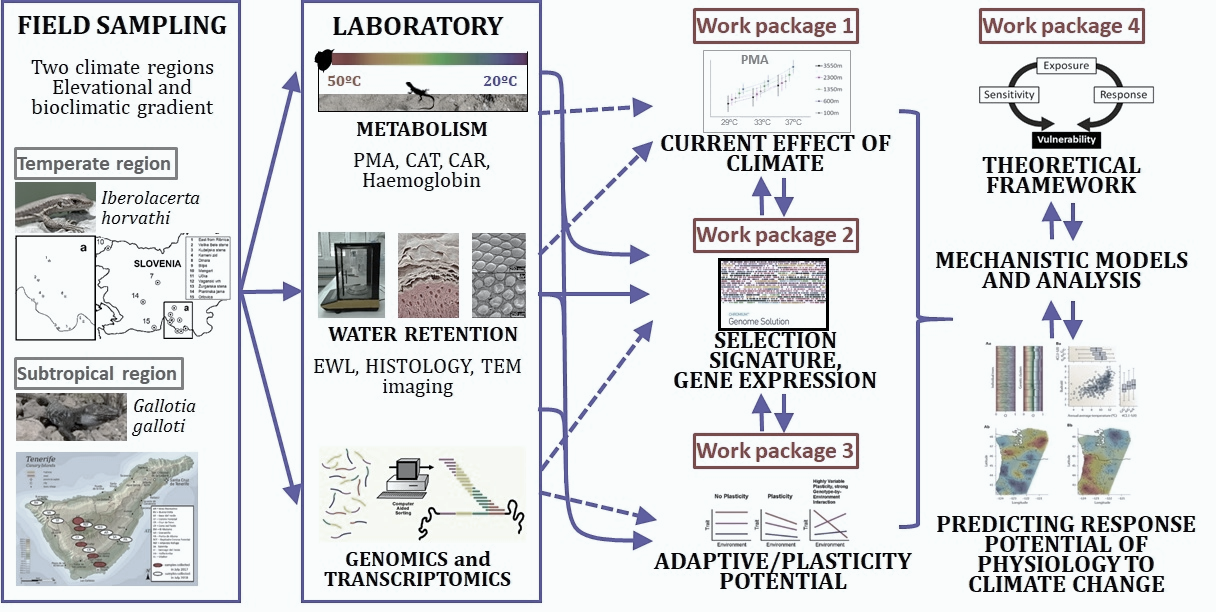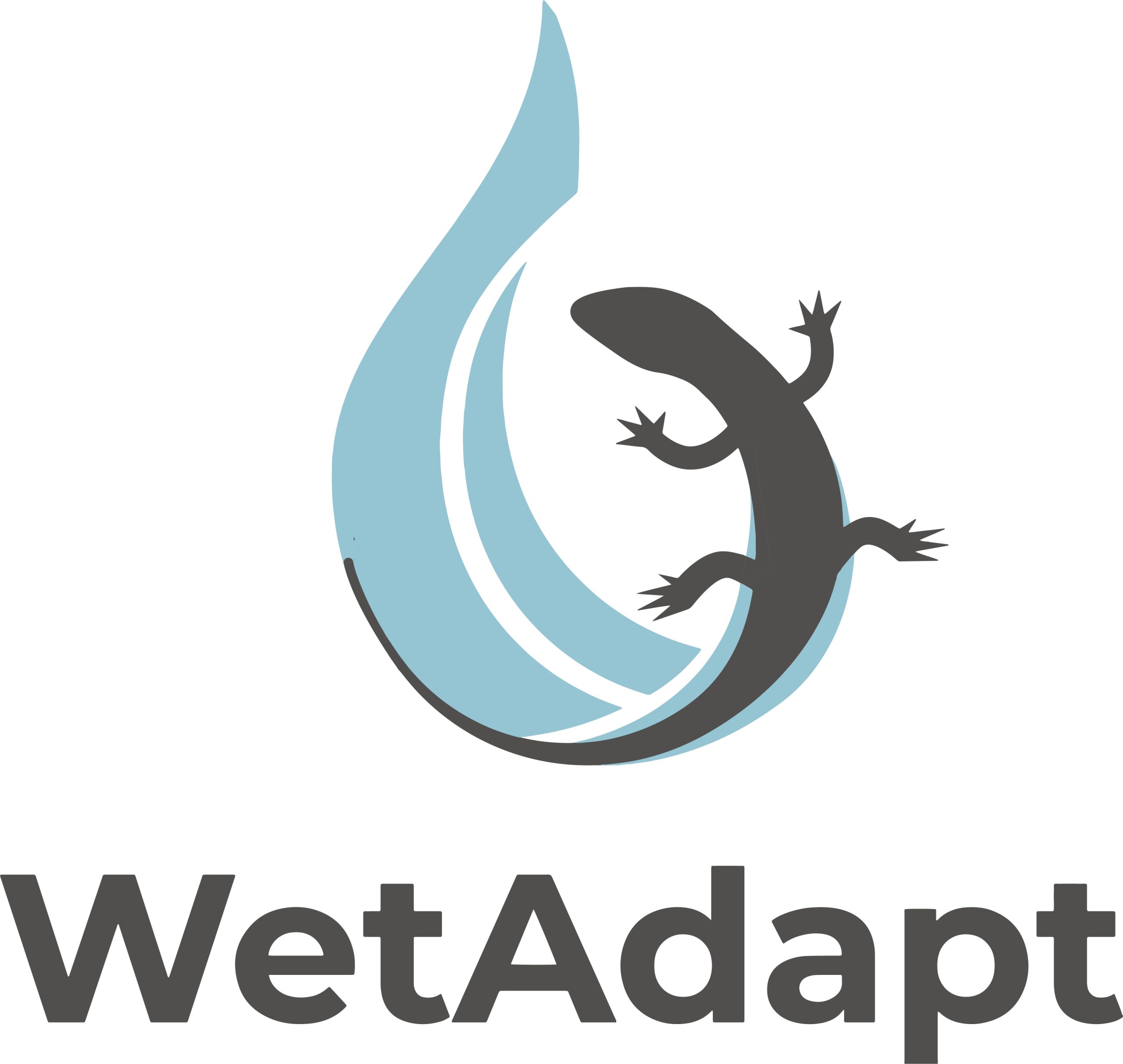ABOUT THE WETADAPT PROJECT
Project WETADAPT is a basic research project funded by the Slovenian Research Agency and led by the Department of Ecosystem and Organism Research at National Institute of Biology (Slovenia). The project focuses on adaptive and plasticity potential of ectotherm physiology, namely, traits involved in metabolism and water retention, to respond to climate change.
We will conduct research on two mountain lizard species that occur across large elevation spans, one from the sub-tropical climate in the Tenerife Island (species Gallotia galloti) and the other from temperate climate in Slovenia (species Iberolacerta horvathi).

Project title
WETADAPT – adaptive and plasticity potential of ectotherm physiology to respond to climate change
Acronym
WETADAPT
Project duration
1.9.2020 – 1.9.2023 (3 years)
Scientific background
Global climate change is now a reality involving not only warming but also shifts in precipitation and other less obvious climatic variables. Therefore, predicting the responses of biodiversity according to the perceived risks of climate change are now of paramount importance. The principle force of adaptive evolution is natural selection, which adjusts phenotypes to environmental conditions and thus increases fitness in the specific environment encountered. Natural selection may result in genetic adaptation to environmental conditions, and/or shape patterns of adaptive phenotypic plasticity, which may also enhance the performance of an individual in the environment in which those changes were induced. Both, genetic and plastic responses determine jointly the fitness of an organism within its environment. Well-resolved spatial pattern of expressed phenotypes across the natural climatic gradient in combination with analysed gene structure and expression could offer new insights into their adaptive and plasticity potential. Particularly suitable model systems for such studies are species with widespread distributions across extreme environmental gradients, where we can employ a multi-population comparison. Since water balance and metabolism are the most important physiological traits of organisms that mediate and define the limits of all other life-history traits, they should be studied in the light of response potentials of species traits to climate change.
Project aims
The project WETADAPT aims to identify the adaptive and plasticity potential of physiology, namely, traits involved in metabolism and water retention, that allow ectotherms to cope with the broad environmental variation in space (in our case large elevation gradient) that serves as a proxy for variation in time (global climate change). The project is based on a carefully planned study design and sampling scheme. We will sample two mountain lizard species that occur across large elevation spans, one from the sub-tropical climate in the Tenerife Island and the other from temperate climate in Slovenia. Multiple-population sampling will cover a wide range of climatic conditions (see also Fig. 1). Phenotypic expression of studied physiological traits will be related to current climatic conditions while we will in parallel analyse changes on the genomic level to unravel adaptations and on the transcriptomic level to search for signs of plasticity. Additionally, experimental manipulation of climatic conditions using climate chambers will be used to understand the functional link between morphology and physiology in water retention ability. In the end, we will introduce this information into mechanistic models to translate the response potential of physiological traits to population fitness (activity times). Ultimately, we will produce predictive models to test the capacity of physiology to respond to future climate change in ectotherms.
Funding
Project is financed by the Slovenian Research Agency, grant number: J1-2466
